Introduction
In 2025, business credit is more important than ever for entrepreneurs who want to secure funding, scale their businesses, and separate personal and business finances. Whether you’re launching a startup or expanding an existing business, having strong business credit gives you financial leverage, allowing you to access better loan terms, higher credit limits, and lower interest rates.
Unlike personal credit, which affects your individual borrowing power, business credit determines your company’s ability to qualify for financing without requiring personal guarantees. A strong business credit profile can open doors to lower interest rates on loans and credit lines. Higher borrowing limits from banks and lenders. Better payment terms from suppliers and vendors. And increased financial credibility with investors and partners.
How to Build Business Credit in 2025
Building business credit isn’t complicated, but it requires strategic steps. This guide will walk you through:
1️⃣ Establishing your business as a legal entity.
2️⃣ Setting up business essentials like phone numbers and addresses.
3️⃣ Opening a business bank account.
4️⃣ Registering with business credit bureaus.
5️⃣ Establishing trade credit with vendors.
6️⃣ Applying for a business credit card.
7️⃣ Monitoring and maintaining your business credit profile.
8️⃣ Applying for business loans and credit lines.
9️⃣ Maintaining good financial habits.
🔟 Keeping personal and business finances separate.
By following these 10 steps, you can build a strong business credit foundation that will help your company thrive in 2025 and beyond.

1. Establish Your Business as a Legal Entity
Why Legal Structure Matters
Lenders, banks, and credit bureaus require a business to be legally registered before assigning a credit profile. Without a registered business entity, your company won’t have a business credit score, and you’ll be forced to rely on personal credit for business loans and financing.
By formalizing your business structure, you:
Separate your business and personal finances (important for legal and tax purposes).
Make your business appear more credible to banks, lenders, and suppliers.
Qualify for business loans and credit cards without a personal guarantee.
Steps to Establish Your Business Legally
📌 1. Register Your Business as an LLC, S Corporation, or C Corporation
- Limited Liability Company (LLC): A flexible option that protects personal assets and offers tax advantages.
- S Corporation (S-Corp): Suitable for small businesses wanting pass-through taxation.
- C Corporation (C-Corp): Ideal for larger businesses or those seeking investors.
📌 2. Obtain an Employer Identification Number (EIN) from the IRS
- Think of an EIN as a Social Security Number for your business—it’s required to open business bank accounts, apply for credit, and file taxes.
- You can get an EIN for free from the IRS website.
Reasons This Step Is Important
✅ Legal Separation – Distinguishes your business finances from personal finances.
✅ Business Credibility – Banks and lenders prefer to work with legally registered companies.
✅ Tax Benefits – Having an EIN makes tax reporting easier and allows you to claim business expenses.
2. Set Up Business Essentials
Creating a Strong Business Identity
Before lenders and credit bureaus assign a credit profile to your business, they need to verify that your company is legitimate and properly structured. Having a clear and professional business identity makes your company more credible in the eyes of banks, vendors, and financial institutions.
To ensure your business is properly set up, follow these steps:
📌 Choose a Legal Business Name and Register It
- Your business name should be unique, professional, and aligned with your industry.
- Register your business name with the appropriate state or local government agency to ensure compliance.
📌 Set Up a Dedicated Business Phone Number (No Personal Numbers)
- Use a separate business phone number instead of a personal or mobile number.
- Consider getting a VoIP or toll-free business line to make your company look more professional.
- List your business phone number in online directories like Google My Business and Yelp.
📌 Use a Business Address (Not a Home Address If Possible)
- A separate business address enhances credibility. Options include:
- Physical office space (best option for credibility).
- Virtual business address (affordable and professional alternative).
- Coworking spaces that provide mailing services.
- Avoid using a home address, as this may appear unprofessional to lenders and clients.
Why This Matters
✅ Lenders and Credit Bureaus Verify Business Legitimacy – A proper business setup ensures your company is taken seriously.
✅ Prevents Rejection for Business Credit – Many lenders won’t approve credit applications if they suspect your business is not properly structured.
✅ Enhances Professionalism and Brand Trust – Clients and vendors feel more comfortable working with established, professional businesses.

3. Open a Business Bank Account
Why a Business Account Is Necessary
Having a separate business bank account is a fundamental step in building business credit. Not only does it help maintain financial organization, but it also proves to lenders that your business operates as a legitimate entity.
Key Benefits of a Business Bank Account:
✅ Keeps Personal and Business Finances Separate
- Mixing business and personal transactions can cause tax issues and harm your ability to get credit.
✅ Builds a Financial History for Your Business
- Lenders and vendors check your business bank account activity to assess your financial stability.
- Consistent deposits and transactions help establish credibility with banks.
✅ Establishes a Relationship with a Bank (Which Can Help with Loan Approvals)
- A strong banking relationship can improve your chances of getting:
- Business loans and credit lines.
- Better interest rates and favorable terms.
- Higher credit limits over time.
Steps to Open a Business Bank Account
📌 1. Choose a Business-Friendly Bank
- Look for a bank that offers:
- Low or no account fees.
- Online and mobile banking features.
- Small business support, loans, and credit options.
- Some popular choices include Chase, Bank of America, Wells Fargo, Capital One, and online banks like Novo or Bluevine.
📌 2. Provide the Required Documents
To open a business account, you’ll need:
- Employer Identification Number (EIN) from the IRS.
- Business name registration and incorporation documents.
- Operating agreement (for LLCs) or corporate bylaws (for corporations).
- Business license (if required in your state).
📌 3. Maintain Regular Transactions to Build Credibility
- Make consistent deposits and withdrawals to show financial activity.
- Avoid low balance warnings or overdrafts—this can hurt your reputation with banks.
- Set up automatic payments for vendors and suppliers to build a payment history.

4. Register with Business Credit Bureaus
What Are Business Credit Bureaus?
Business credit bureaus collect and track financial data about companies, similar to how personal credit bureaus track individual credit histories. These agencies generate business credit reports that lenders, banks, and vendors use to assess a company’s financial reliability and creditworthiness.
The three major business credit bureaus are:
📌 Dun & Bradstreet (D&B) – The most well-known business credit bureau.
- Get a D-U-N-S Number (a unique identifier for your business) to establish a credit profile with D&B.
- Many vendors and lenders require a D-U-N-S Number before extending credit.
- Apply for a free D-U-N-S Number on the Dun & Bradstreet website.
📌 Experian Business & Equifax Business – Additional credit bureaus that track business credit.
- Experian Business provides a business credit score based on financial transactions and payment history.
- Equifax Business tracks credit accounts, loan history, and company financials.
- You can register your business with these bureaus to begin establishing a credit report.
Why This Is Important
✅ Business Credit Bureaus Track Your Financial History
- Just like a personal credit report, your business credit profile shows your payment history, credit accounts, and financial activity.
- Lenders and vendors check these reports when determining whether to approve loans, credit lines, or trade credit.
✅ Without Registration, Your Business Won’t Have a Credit Profile to Improve
- If your business isn’t registered with D&B, Experian, or Equifax, you won’t have a business credit score, making it difficult to qualify for credit accounts and loans.
- Many trade vendors and suppliers only report to registered businesses, so setting up your credit profile is a must.
5. Establish Trade Credit with Vendors
What Is Trade Credit?
Trade credit allows businesses to purchase goods or services on credit and pay later—typically within 30, 60, or 90 days. This is called Net-30, Net-60, or Net-90 terms, meaning you have that many days to pay the invoice.
🔹 Net-30 Example: A vendor provides $1,000 worth of office supplies and gives you 30 days to pay. If you pay early or on time, this helps build your business credit profile.
Trade credit is one of the best ways to establish business credit early because vendors report your payment history to business credit bureaus.
How to Establish Trade Credit
✅ Open Accounts with Suppliers That Report to Business Credit Bureaus
- Not all vendors report payments to credit bureaus, so work with those that do.
- Apply for Net-30 accounts with suppliers who offer business credit terms.
✅ Pay Invoices On Time or Early to Improve Your Credit Rating
- Late payments will hurt your business credit score, so always pay before or by the due date.
- Early payments may boost your creditworthiness with vendors, helping you qualify for better terms in the future.
Examples of Vendors That Report to Credit Bureaus
If you’re looking for vendors that help build business credit, consider working with:
📌 Office Supply Companies – Businesses like Uline, Grainger, and Quill offer Net-30 terms and report payments.
📌 Wholesale Distributors – Companies that provide inventory, equipment, and raw materials.
📌 Marketing and Advertising Firms – If you use digital marketing, printing, or advertising services, choose vendors that offer credit terms.
6. Apply for a Business Credit Card
Why Business Credit Cards Help
A business credit card is one of the fastest and most effective ways to build your company’s credit history. It provides access to working capital while keeping personal and business expenses separate. Plus, responsible use of a business credit card can improve your creditworthiness with banks, lenders, and suppliers.
Key Benefits of a Business Credit Card:
✅ Fastest Way to Build Credit History – Using a business credit card and paying it off on time helps establish a strong credit profile quickly.
✅ Separates Personal and Business Expenses – Avoid mixing personal and business finances, making taxes and financial management easier.
✅ Often Includes Rewards and Perks for Business Spending – Many business credit cards offer cash back, travel rewards, and purchase protection on business-related expenses.
How to Choose the Right Business Credit Card
📌 Select a Card That Reports to Business Credit Bureaus
- Not all business credit cards report payments to Dun & Bradstreet, Experian Business, or Equifax Business—make sure yours does.
- Business credit cards that report activity help you build credit faster.
📌 Look for Low Interest Rates and High Rewards
- If you carry a balance, choose a card with low APR to avoid costly interest payments.
- Select a rewards program that benefits your business—options include cash back, travel perks, or discounts on office supplies and advertising.
📌 Use the Card for Regular Business Expenses and Pay the Balance in Full Each Month
- A business credit card should NOT be used to accumulate debt—instead, use it strategically for business purchases and pay it off in full.
- Keeping your credit utilization below 30% will help maintain a strong business credit score.
7. Monitor and Maintain Your Credit Profile
Why Monitoring Business Credit Is Essential
Just like personal credit, your business credit profile needs regular monitoring to ensure accuracy, detect potential fraud, and identify areas for improvement. A small mistake or incorrect report could lower your business credit score and hurt your chances of securing funding.
Key Reasons to Monitor Your Business Credit:
✅ Ensures Your Credit Report Is Accurate – Mistakes on your credit report (such as incorrect payment histories or duplicate accounts) can lower your score unfairly.
✅ Helps Detect Errors or Fraudulent Activity Early – Identity theft and fraud are growing risks—monitoring your business credit helps catch suspicious activity before it damages your reputation.
✅ Identifies Areas for Credit Improvement – Regular monitoring allows you to spot weaknesses in your credit profile and take steps to strengthen it.
How to Monitor Your Business Credit
📌 Check Reports on Dun & Bradstreet, Experian Business, and Equifax Business
- Each credit bureau has its own credit scoring system, so it’s important to monitor all three regularly.
- You can request business credit reports from:
- Dun & Bradstreet (D&B): Access your D-U-N-S Score via D&B’s Credit signal tool.
- Experian Business: Check your business credit report through Experian Smart Business Reports.
- Equifax Business: View your credit profile through Equifax Business Credit Reports.
📌 Dispute Any Incorrect Information on Your Credit Report
- If you notice errors (incorrect balances, payments not reported, or fraud alerts), dispute them immediately.
- Contact the respective credit bureau and provide proof of errors to have them corrected.
📌 Keep Track of Your Business Credit Score and Payment History
- Regularly reviewing your credit score and payment trends can help you make better financial decisions.
- Set up alerts for changes to your credit score to stay informed about any updates.
8. Apply for Business Loans and Credit Lines
Once Your Credit Improves, You Can Apply for:
After successfully building and maintaining a strong business credit profile, your company becomes eligible for better financing options. This opens the door to securing capital for growth, operations, and expansion.
📌 Business Lines of Credit – Flexible Funding for Short-Term Needs
- Works like a credit card—you get access to a set amount of funds and only pay interest on what you borrow.
- Ideal for managing cash flow, covering unexpected expenses, or investing in short-term projects.
📌 SBA Loans – Government-Backed Loans with Low-Interest Rates
- Offered by the Small Business Administration (SBA), these loans come with low interest rates and longer repayment terms.
- SBA loans are great for business expansion, purchasing inventory, or hiring employees.
📌 Equipment Financing – Loans Specifically for Purchasing Business Equipment
- Designed to help businesses buy machinery, vehicles, or office equipment.
- The equipment itself serves as collateral, reducing risk and making it easier to qualify.
Why This Step Matters
✅ Strong Business Credit Means Better Loan Terms – Businesses with a high credit score get lower interest rates and higher borrowing limits.
✅ Higher Approval Rates – Banks and lenders prefer businesses with proven financial responsibility.
✅ Lower Interest Rates – A strong credit profile reduces the risk for lenders, which can translate into lower borrowing costs for your business.
9. Maintain Good Financial Habits
How to Keep Business Credit Strong
Once you’ve built business credit, maintaining it is just as important. Strong financial habits ensure that your business remains eligible for financing, vendor partnerships, and growth opportunities.
✅ Pay All Bills On Time (or Early) – Late Payments Hurt Your Score
- Payment history is one of the biggest factors in business credit scores.
- Even a single late payment can negatively impact your credit rating.
✅ Keep Credit Utilization Low – Use Less Than 30% of Your Available Credit
- Just like with personal credit, maxing out business credit cards or credit lines can hurt your score.
- Keep credit utilization below 30% to show lenders that your business is financially stable.
✅ Manage Cash Flow Effectively – Ensure Your Business Can Handle Expenses
- Avoid spending more than your business brings in—positive cash flow is essential for maintaining good creditworthiness.
- Monitor revenue and expenses closely to ensure that your business remains financially healthy.
The Impact of Good Habits
📌 A Strong Business Credit Score Leads to Better Financing Options
- Lenders and vendors trust businesses with strong financial habits, making it easier to secure higher credit limits and better loan terms.
📌 Long-Term Financial Stability
- Good credit habits ensure business sustainability, reducing reliance on high-interest loans and keeping your business in good standing.
Business credit isn’t just about building—it’s about maintaining. Stay disciplined, and your business will thrive for years to come!

10. Separate Personal and Business Finances
Why Separating Finances Is Important
One of the most common mistakes entrepreneurs make is mixing personal and business finances. Keeping them separate is essential for financial organization, legal protection, and credibility with lenders.
✅ Protects Personal Assets from Business Liabilities
- If your business is sued or faces financial difficulties, mixing finances puts your personal savings and assets at risk.
- Having separate finances ensures that your business debts and obligations don’t affect your personal wealth.
✅ Makes Tax Reporting Easier
- Clearly, distinguishing personal and business transactions simplifies bookkeeping, tax deductions, and IRS audits.
- Business expenses are easier to track and deduct from taxable income when they’re in a dedicated business account.
✅ Helps Build Business Credibility with Lenders and Banks
- Banks and lenders look for financial separation when evaluating business credit applications.
- If they see personal transactions mixed with business expenses, it can lower your chances of getting approved for loans or credit lines.
How to Maintain Separation
📌 Use Business Accounts and Credit Cards Exclusively for Business Expenses
- Open and maintain a dedicated business checking and savings account.
- Use a business credit card for company-related expenses instead of a personal card.
📌 Keep Accurate Financial Records for Tax Reporting and Credit-Building
- Track all income and expenses using accounting software like QuickBooks, Xero, or Wave.
- Keep detailed invoices, receipts, and bank statements for tax and audit purposes.
Keeping business and personal finances separate is essential for maintaining financial stability and credibility—helping you build a strong business credit profile that lasts!
Conclusion
Building strong business credit takes time, consistency, and smart financial decisions, but the benefits are well worth the effort. With a solid business credit profile, your company gains financial leverage, credibility, and access to better funding opportunities.
Recap: Key Steps to Building Business Credit
Establish your business legally and open a bank account.
Register with business credit bureaus and establish trade credit.
Use business credit cards responsibly and monitor your credit reports.
Apply for business loans once your credit profile is strong.
Maintain good financial habits to sustain long-term success.
Take Action Now!
📢 Business credit takes time to build—typically 6-12 months—so the sooner you start, the better your chances of securing loans, credit lines, and funding when you need it most.
💡 Don’t wait until your business needs financing—start building credit today!
Final Motivation
🚀 Strong business credit gives you financial leverage, better loan options, and a stronger foundation for long-term success in 2025 and beyond! Start today, stay consistent, and watch your business thrive! 🔥
